Our Core Values
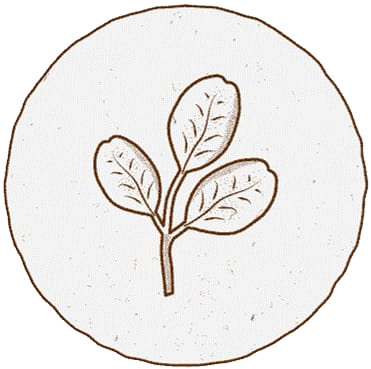
organic
100% Organic feed raised on organic soil results in a product that is nutrient dense and beyond organic.
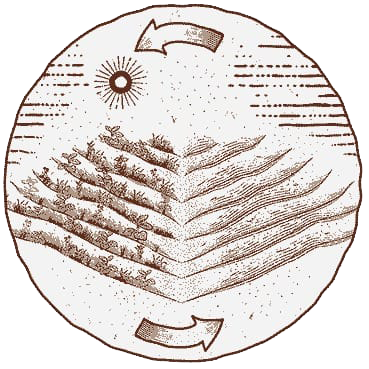
REGENERATIVE
Our rotational grazing cycle allows the soil to regenerate and rebuild, as well as sequester more carbon
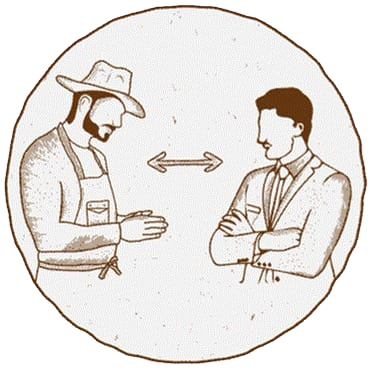
NO MIDDLE-MAn
There is no middleman. I am your farmer and handle your product directly. I value the personal relationships we build

NO TOXINS
We do not vaccinate or give medicated feed to our chickens. They get no additives or chemicals
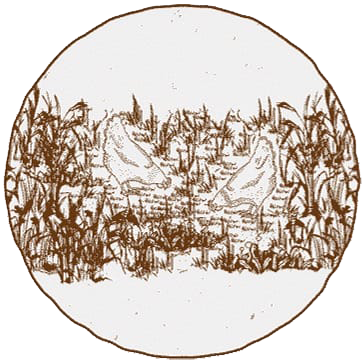
Pasture Raised
Our flock is raised on pasture, outdoors in sun, eating grass, bugs, and supplemental organic feed free of corn, soy and wheat
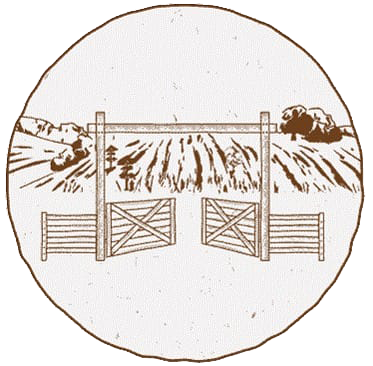
OPEN-DOOR POLICY
We are fully transparent with our farming practices. Come visit anytime. Ask us all your questions
AT BACK IN THE HAY WE PRIORITiZE HEALTH OVER PROFITS
OUR JOURNEY AT A GLANCE
2017
Schooled by "Youtube University" and discovering regenerative agriculture
2020
Setting up a Mini farm for a trial run in our backyard
2022
Buying land to expand our operation
2019
Personal health concerns lead to alternative healing
2021
Starting our business in our own 1/2 acre backyard
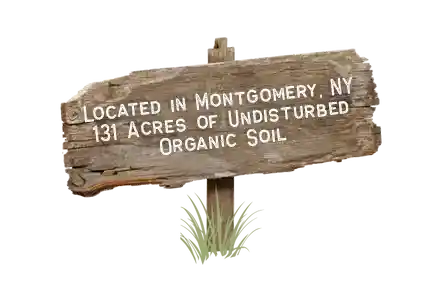
Know your farm
2020: Trial Run:
The year that will forever be ingrained in our minds as the year of covid and lockdowns.For our family, it was the perfect opportunity to test our business theory and model.We put up a fence and adopted four goats, one of which was pregnant. At the same time, we built our very first chicken tractor to use for rotating our chickens on pasture. We ordered chicks of different breeds and did trial run in our backyard. Once our test run was complete and the product was enjoyed by all with many positive reviews, we knew we were onto something that people wanted.

2021: From Dream To Fruition:
We needed to move things quickly to be fully prepared for the upcoming season. We ordered egg laying hens and rented pasture land to accommodate that flock. We raised meat birds in our backyard at a capacity of 3 chicken tractors = 100 chickens per rotation. We got into the swing and routine of our process and learned so many new aspects of our business along the way. We were often sold out before they were harvested. Mostly we saw the need for expansion. LAND!! PASTURE!!

2022: Buying Farm Land
Becoming an official farm owner with lots of land was a huge milestone for us. Now we were able to set up for production and distribution for the upcoming season properly. With enough space and resources we are easily able to meet the demand and expand our product line. We are grateful to have come so far.

Preparing And Protecting The Land:
Finding and acquiring the right piece of land for our endeavor was a big accomplishment. The first obstacle we faced was clearing the land of weeds and overgrown shrubbery to make it pasture-friendly.
Thankfully we had the solution in our backyard; our goats. They are powerful and efficient brush clearers. They work quietly, safely, and naturally while fertilizing the land at the same time. It is nature’s solution to keeping the soil undisturbed by heavy machinery. Then we needed to protect our flocks from predators hence we welcomed Leo and Lassie, two Great Pyrenees livestock guardian dogs, to our farm.
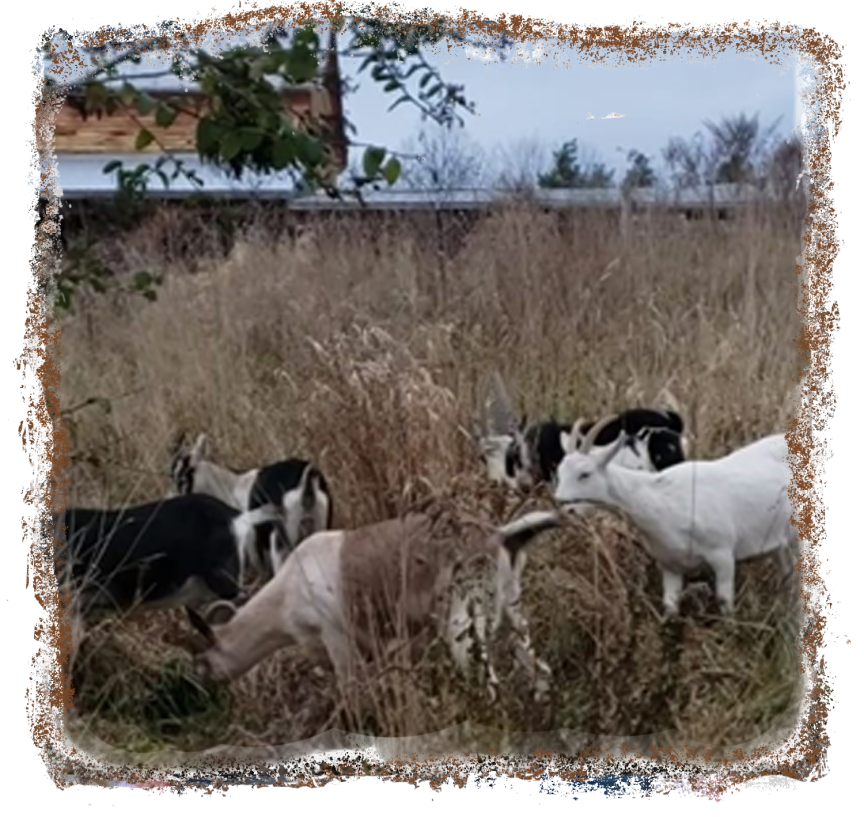
Our goats clearing the overgrown brush


Education:
We had many more challenges and lots of questions, but we always had who to turn to for support and advice. We were blessed with finding and connecting to many pioneers in the field who graciously shared their knowledge and experience with us.
In December of 2019
Our family visited Polyface Farm, founded and run by Joel Salatin and his family. We were given a full tour of the farm and the farming methods, which deepened our understanding of everything we had read and heard until then. This was our initial first-hand exposure to permaculture and witnessing the use of nature to it’s best and fullest. We saw how each farm animal plays their specific role in order to coexist and benefit each other. With our newfound confidence, we began applying all these methods to our then backyard farm. Our new hands-on experience quickly taught us many tricks of the trade.
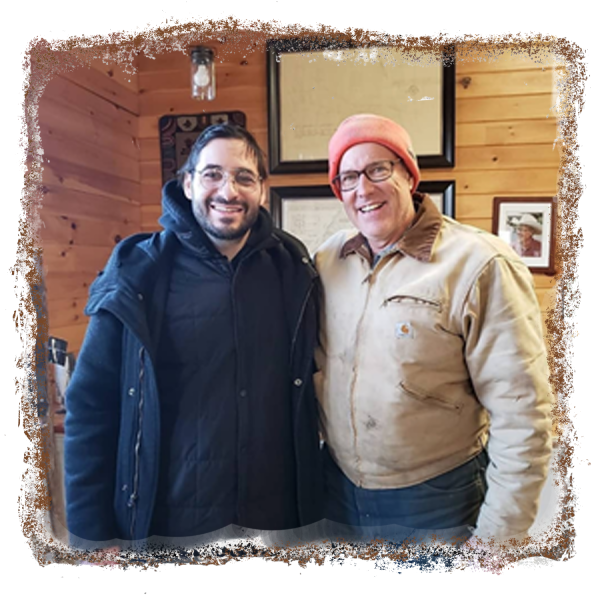
Shalom Gelbman (L) pictured with Joel Salatin (R) at Polyface Farm
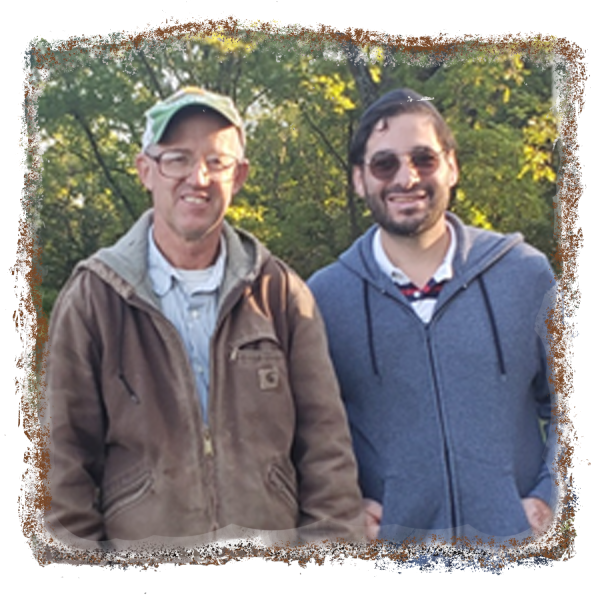
Greg Judy (L), of Green Pastures Farm, pictured with Sol Gelbman (R), at the workshop.
In September of 2020
My wife and I, visited Green Pasture Farms, founded and run by Greg Judy. He has vast knowledge and success with raising cattle on pasture. We attended his three-day grazing seminar. We got up close and personal with the cattle on his farm and inhaled a huge amount of knowledge about everything related to raising livestock on pasture alone. That was an unforgettable experience, and it reinforced the importance and health benefits of soil quality and grass biodiversity.
In January of 2022
That year the annual APPPA Convention (American Pastured Poultry Producers Association) was held in Jacksonville, FL. It offers guidance for all aspects of farming the way we do. It was very instructive and filled many gaps that we were missing. The main message we took home was: make your daily decisions based on your long term goals and you will get there. Slowly but surely.
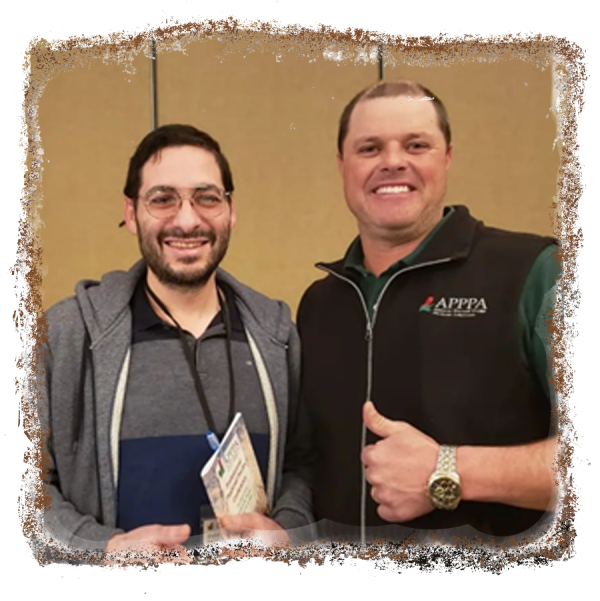
Shalom Gelbman (L), pictured with Daniel Salatin (R) at the APPPA Convention.
A Day At The Farm
After my 50-minute commute I am at the entrance of the farm. I change into my farm boots to avoid cross-contamination. I am greeted by the dogs barking and goats calling to me. I start walking around to check on our many poultry flocks including chicken, turkey and duck we raise for meat and egg laying hens. I observe their mood and behavior. Do they look upbeat and healthy today?
Tending to our many flocks
All our birds are vaccine-free and are fed a "salad bar" of green pastures, bugs, and a supplemental feed that is:
- 100% organic
- No Additives
- corn, soy & wheat free
- customized ratios for each stage
They are housed in chicken tractors built in a way that the sunlight hits them directly if they wish to sit in that area, while still offering shade. Each bird can decide what it needs and can act accordingly. They get to express their natural behavior of pecking and eating the grass, scratching and searching for bugs, and just being outdoors under the heavens and clouds. They are rotated daily on fresh pasture. It serves as their bedding so that they don’t sit in their own filth and get exposed to disease. Each measure of input results in the most nutrient-dense product a farmer can offer.
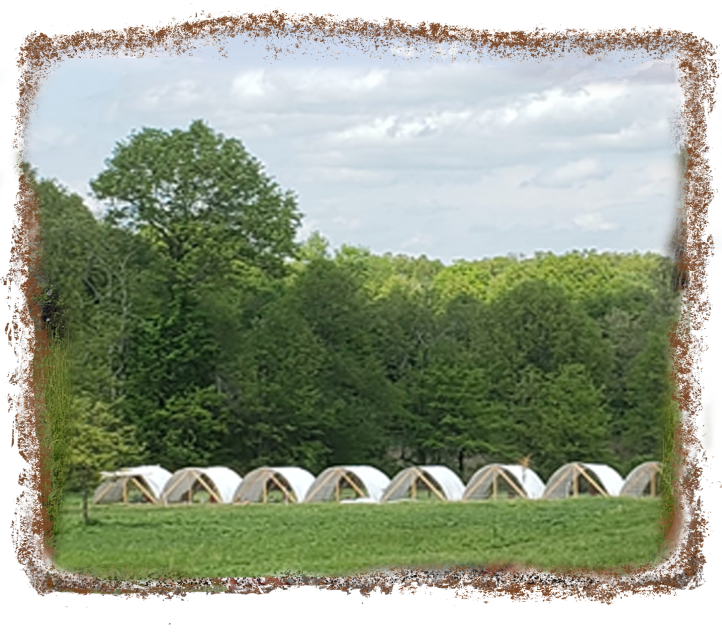
Chicken tractors rotated daily on fresh pasture
Egg-laying hens
I finish my rounds with our egg-laying hens who get pretty much the same routine of water, feed, and fresh pasture daily, with some slight differences. These hens are a different breed than the meat birds and enjoy the grass with more gusto. They have a larger patch of pasture with each move as their tractors are bigger, and yet we still try to move them twice per day. The nest boxes are in the tractors so when they’re ready to lay their eggs for the day, each hen can do its thing as it pleases.
We collect the eggs daily, wash and package them before refrigerating them.
Baby chicks
The baby chicks in the heated brooder are my first stop. I refill their feed and their water while analyzing their behavior. Who is ready to graduate and get moved to greener pastures?
Meat birds
chicken • ducks • turkey
I move on to our meat birds who are happily moving around in their chicken tractors. I refill their feed and water as well. Now it is time to move the chicken tractor. When animals are regularly moved from pasture to pasture, they consistently have new meadows from which to feed, and the vegetation in the resting pastures has time to recover. These meat birds get harvested when they’ve reached their optimal weight.
Sanitation
Our brooders and chicken tractors are sanitized and thoroughly scrubbed with non-toxic soap between batches. We do everything possible to keep our flock clean and disease-free.



Know Your Farmer
I always harbored a dream of living with nature and working with animals.
For my first adventure I seriously contemplated creating a specialty beef called “rose veal”. While researching this project and finding contacts to obtain baby calves, I came across Joel Salatin and his pioneering method of regenerative farming. Intrigued, I acquired many of his books and absorbed everything I could from him. This completely changed my vision of farming.
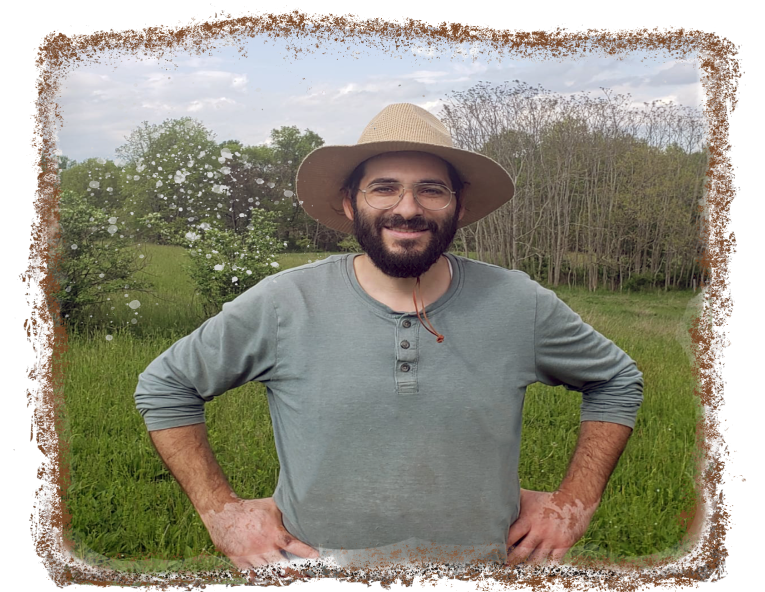
Our goats clearing the overgrown brush
In 2019, after a few months of terrible back pain, a visit to a specialist was called for. The test results confirmed a diagnosis of Rheumatoid Arthritis. I wasn’t even 40 years old yet. I was prescribed a self-injecting steroidal drug to take bi-weekly for life which would take care of my pain and give me back my regular movement ability.
The Beginning Of My Lifestyle Change
The prescribed meds were sitting in the fridge while I was unsure if this was the best solution for me. After suffering another bad attack and almost willing to surrender, my wife began looking into the side effects.
The side effects listed were:
- Leukemia
- Cancer
- Possible death.
Remembering that she once heard about turmeric being a powerful and natural anti-inflammatory supplement, she bought some for me to take daily. The improvements were immediate, and the relief of not having to take such drastic harmful drugs was enormous.
This caused us to evaluate our food intake and the nourishment it provides for our bodies.
We started educating ourselves about what’s best for our health and what to avoid. Reading labels opened our eyes to the realities of our consumption. We became aware of what we were putting into our bodies and the effects it would have on us.
Slowly, we changed our diet to include mainly whole foods.
Later on, after realizing the dangers of glyphosate, the crucial decision was made to switch to organic food at home and on the farm.
As our journey continues, so does our commitment to providing ourselves and our valued clients with the most nutrient-dense foods.Looking ahead…
We are extremely grateful for our progress and growth until now and yet we have many plans for our farm's future.
In the next 5 years we want to...
- Introduce lamb and beef products
- Create a space for overnight and weekend visits.
- Move our family onto the farm to enjoy it to the fullest
- Form a close knit community with our patrons and encourage each other's health journey





